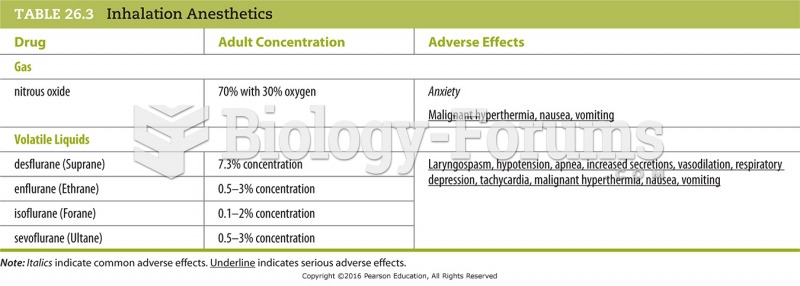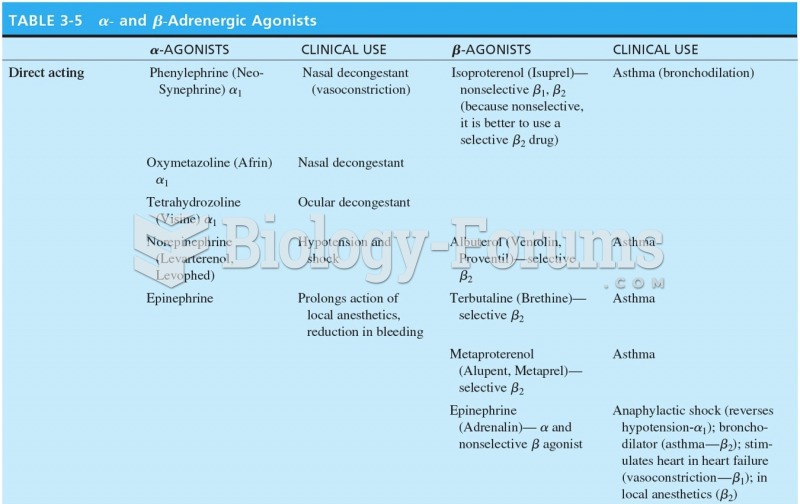Answer to Question 1
Correct Answer: 4
Rationale 1: Adrenergic agonists are not digested in the gastrointestinal tract.
Rationale 2: No toxic by-products are produced.
Rationale 3: Adrenergic agonists are not rapidly absorbed by the blood.
Rationale 4: Epinephrine is metabolized by the enzymes MAO and COMT in the liver and in most tissues; hence, it is not absorbed orally.
Global Rationale: Epinephrine is metabolized by the enzymes MAO and COMT in the liver and in most tissues; hence, it is not absorbed orally. Adrenergic agonists are not digested in the gastrointestinal tract. No toxic by-products are produced. Adrenergic agonists are not rapidly absorbed by the blood.
Answer to Question 2
Correct Answer: 2
Rationale 1: There are two alpha receptors: alpha-1 and alpha-2. Stimulation of alpha-1 receptors by epinephrine causes pupillary dilatation; stimulation of alpha-2 receptors causes blood pressure to rise and more blood to flow to the peripheral muscles, which is very helpful in the fight-or-flight response. But epinephrine stimulates all four types of receptors.
Rationale 2: Epinephrine stimulates all four types of receptors, and hence causes an intense fight-or-flight response, the effects of which are seen all over the body.
Rationale 3: Epinephrine stimulates all four types of receptors, not just the beta-2 receptors. Stimulation of beta-2 receptors in the bronchi causes dilatation of the bronchi, which allows easier breathing during a fight-or-flight response.
Rationale 4: Epinephrine stimulates all four types of receptors, not just the beta-1 receptors. Beta-1 receptors in the heart cause the heart to beat faster and to provide more blood to the body's tissues.
Global Rationale: Epinephrine stimulates all four types of receptors, and hence causes an intense fight-or-flight response, the effects of which are seen all over the body. There are two alpha receptors: alpha-1 and alpha-2. Stimulation of alpha-1 receptors by epinephrine causes pupillary dilatation; stimulation of alpha-2 receptors causes blood pressure to rise and more blood to flow to the peripheral muscles, which is very helpful in the fight-or-flight response. But epinephrine stimulates all four types of receptors.







